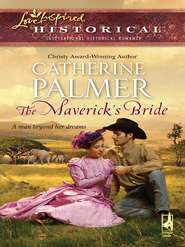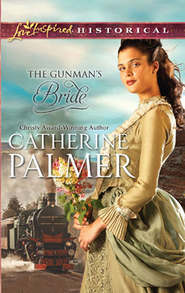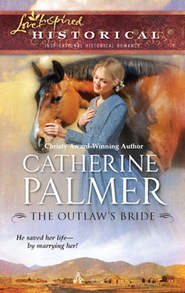По всем вопросам обращайтесь на: info@litportal.ru
(©) 2003-2024.
✖
The Briton
Настройки чтения
Размер шрифта
Высота строк
Поля
Perhaps there was some true affection between the two. Bronwen dreaded the thought of marriage to a man who desired her sister.
Aeschby now signaled one of his retainers. The man carried a black box from his position at a table below the salt container. Together they stepped up to the dais, and Aeschby lifted the box from the hands of his kneeling servant.
“Take this heirloom, my lord,” he addressed Edgard, “as a sign of my loyalty to you, and of my fealty to our Briton cause.”
A loud cheer rose from the crowd as Aeschby lifted a golden neck-ring from the box and held it high over his head. It was a truly magnificent work, hand-wrought many generations ago for some unknown king.
Edgard received the ring and thanked Aeschby. “This young lord shows himself to be a treasure-giver worthy of his noble heritage,” he said. “I accept this ring as a father accepts a gift from his son.”
At that, another roar went up, drowning the sound of the minstrels as they announced the second course of the feast. Bronwen was impressed with the gift her father had been given, but she was startled to hear him address Aeschby as “son.” Perhaps there was truth in her speculation that their betrothal would be announced that evening.
The next courses came and went, but to Bronwen the meal seemed a blur. According to her plan, mince pies, dilled veal balls, baked lamprey eels, swan-neck pudding, giblet custard pie, currant tart and elderberry funnel cake marched out of the kitchen one after the other. Men rose and gave one another treasures, as at all feasts, and speeches of thanks and boasting followed. Bronwen sampled little of the foods set before her, but her father and Gildan ate with relish.
“Father, Bronwen has been deep in thought all evening,” Gildan said over the din. “Perhaps we should have a song to waken her.” Gildan looked at her sister with teasing eyes.
Edgard laughed. “Always the pensive one, Bronwen. Indeed, it is time for the boar’s head now!” He called the musicians. “Let us sing to the boar’s head on this night of feasting.”
As the marshal entered the hall bearing a large platter, all the company stood and began to sing. Bronwen noticed that the tall stranger had risen, but a hood still covered his features.
“The boar’s head in hand bear I,” the feasters sang. “Bedecked with bays and rosemary, and I pray you my masters, be merry!”
As the song ended, the marshal knelt before Edgard and offered the platter to him. “And now may the gods bless all noble sons of Britain,” Edgard said. “May the coming year bring prosperity to one and all.”
The carver sliced the meat, and the servers passed it from one guest to another. As feasters cut into the delicacy, Bronwen tried to believe this was to be a happy evening after all. There was no need to dwell on gloomy things. Even if she were to marry Aeschby, she could return often to her beloved home to visit Gildan and her father. These were her people, the Briton men, and she must—indeed she wished to—carry on their lineage.
Then a movement caught her eye, and she turned to see the old Viking leader rise from his seat. “I salute you noble Edgard the Briton, ring-giver and sword-wielder,” he said in a strong voice.
Bronwen noted that the other men quieted as the barbarian spoke, some glancing darkly at the Viking. It was clear to her that this man was resented at the feast, though Edgard appeared pleased with the salutation. It was strange to hear her father addressed as ring-giver, for he had awarded few treasures in recent years. No battles had been won or glories deserved.
“A feasting so fine as this,” the man continued, “we Vikings have never before seen. We commend the food-provider and the hall-adorner for this pleasure.”
Bronwen wanted to laugh at the odd way his Norse tongue spoke their language. It was an outrage against decency to have him here. Yet the barbarian was making some effort to be civilized. She scrutinized the heavy brown woolen tunic he wore, so out of place in the brightly decorated hall. As he lumbered forward, Bronwen wondered what his gift would be. The barbarian was an old man, nearly the age of her father. Though his hair and beard were still the color of saffron, his face was crisscrossed with lines and his walk was pained.
“I, Olaf Lothbrok,” he intoned, “who have done many brave deeds, who have crossed the salt sea and borne hardship on the waves, I, who have wrestled with the whale-fishes and battled mighty monsters, I come gladly into the hall of the strong and generous Edgard. Before this one filled with manly courage, this battle-brave ring-giver and treasure-lord, I present this cross.”
Bronwen gasped. The cross he now held before her father was a work of immeasurable value. Almost as long as his arm from elbow to hand, the piece was wrought in fine gold and set with rubies and sapphires. It was obviously a relic stolen from some Norman church the barbarian or his father had raided. Though Bronwen knew little about this religion that had been brought to Britain by wanderers known as Christians, she believed all sacred objects should be respected. How could such a gift—a plundered holy symbol—be accepted? Yet here was her father now, holding the cross and admiring its workmanship.
“Olaf Lothbrok,” Edgard addressed the man, “this generous gift I receive from the hand of a neighbor and friend. Though our people were once at war, now—in these difficult times—we are allies.”
A murmur arose from the men, and Bronwen noticed the hooded stranger at the far end of the room speaking with great animation to his companions. She was appalled. It was bad enough to invite the Viking to the feast—a move Bronwen had protested vehemently—but for Edgard the Briton to claim him as a friend and ally? Surely her father had lost his wits. Bronwen turned to Gildan and saw her staring open-mouthed at the Viking as he returned to his table.
It was too much! Bronwen wanted to bolt from the room, escape the house and run down to the beach, where she could sit alone and ponder what her father’s actions could mean. The Britons had tried to keep themselves a pure race, never to be allied with such a people as this old Viking and his Norse companions. Blood pounding through her head, Bronwen forced a deep breath as she watched her father step back onto the dais and lay the cross on the table.
“Fellow Britons,” her father said loudly, “at the start of the feast, I spoke to you of a great announcement. As you know, I am possessed of two fine treasures. Stand, Bronwen! Stand, Gildan!”
Bronwen rose shakily to her feet, and the men began to cheer. Gildan had turned pale and appeared also to be short of breath.
“Though I have no sons to continue the line of my forefathers, I have two daughters, both now of marriageable age. They are fine women, and through long negotiations, I have found worthy husbands for both.”
So it was to be Gildan, too, Bronwen realized. Poor Gildan. For so long she had dreamed of a husband, and now that her betrothal was to be announced, she stood ashen and shivering. Bronwen longed to go and take her sister’s hand as she had done when they were children.
“My elder daughter, Bronwen,” Edgard continued, “the child who seems almost the spirit of her mother, so nearly do they look alike—I now betroth to Olaf Lothbrok.”
At the name, Bronwen gasped aloud, incredulous at her father’s words. Gildan cried out, and all the company of men began to murmur at once.
“Silence please,” Edgard spoke up. “Allow me to continue. My daughter Gildan I betroth to Aeschby Godwinson. Gildan brings to her marriage one fourth of all my gold and treasure, and upon my death I will her to receive one fourth more.”
Half! At this news, the men cheered wildly. Bronwen saw that bright spots of pink had flowed back into Gildan’s cheeks, and her sister was smiling again. Aeschby moved to the dais and stood proudly beside his betrothed.
Edgard spoke above the roar. “Bronwen brings to her marriage one half of all my gold and treasure.” He stretched out his hands, motioning for silence. “Now you must listen carefully, Britons. Hear my will to my daughter Bronwen upon my death.”
The men in the room fell silent, and even the servitors stopped to listen. Bronwen knotted her fingers together as her father continued to speak.
“When I die, Bronwen will receive all my lands and this Rossall Hall into her own hands. They will not pass under the governance of her husband, Olaf Lothbrok, as is the Briton custom. I shall not permit my possessions to slip from the hands of my tribe. If my daughter Bronwen gives birth to a son by this Viking, then the inheritance will fall to the son upon his coming of age. If she has a daughter or no child, at her death these lands will pass to Aeschby and his lineage through my daughter Gildan.”
Edgard stopped speaking for a moment and looked long at his stunned guests. Then he began to recite the many brave deeds of his forefathers, those beloved tales Bronwen knew so well. As the Briton talked, Olaf Lothbrok moved from his bench and came to stand beside her. Bronwen drew back from the touch of his woolen tunic as it grazed her hand. She could not bear to look at this man or meet the hard gaze of the silent Briton company.
Instead, she found herself staring down at her own slippers, intricately crafted of gold threads and purple embroidery. Edgard had brought them for her from the market fair in Preston, and she had saved them for this special feast. Her eyes wandered to the large leather boots of the Viking. They were caked with mud and sand, and small bits of seaweed clung to their thick crossed bindings.
Could she ever learn to care for the man who wore those boots? Would she one day look forward to the heavy sound of their entrance into her chamber? Would there be a time when her eyes grew accustomed to their presence beside her own thin slippers at the foot of their marriage bed?
Bronwen shook her head, then shuddered as she felt the barbarian’s huge hand close around her own. Why had her father done this? She could make no sense of his plans. At last she lifted her chin as the Viking beside her raised their hands high above their heads.
“And so the continuation of the great line of Briton nobles is assured,” her father was saying. “I have accomplished this by the favorable marriages of my two daughters to these worthy men.”
For a moment, the room was silent. Slowly one or two guests began to applaud, then several others pounded their mugs upon the tables. At last the entire company broke into a thunderous roar of cheering and shouting.
Bronwen looked up in time to see the group of travelers rise and move toward the door. Their tall leader bowed toward the dais, then stepped out of the great hall. Bronwen gave their departure little thought, for the eyes of the Briton guests burned into her. She dared not look into any man’s face, for she knew she would find it filled with questioning, doubt and pity.
As Edgard finished speaking, he turned to Bronwen and wrapped his arms around her, though she knew no warmth from the embrace. Then he grasped Olaf Lothbrok by the shoulders and congratulated him heartily. Finally he turned to embrace Gildan and Aeschby, and Bronwen knew she was at last free to go.
Without another look around the hall she had worked so hard to prepare, she pulled her hand from the grip of the Viking and stepped down from the dais. As she hurried toward the door, she felt a hand catch hold of her skirt.
“Welcome to the family, Briton,” one of Olaf’s men said in a mocking voice. “We look forward to the presence of a woman at our hall.”
Bronwen grasped her tunic and yanked it from the Viking’s thick fingers. As she stepped away from the table, she heard the drunken laughter of the barbarians behind her.
Running down the stone steps toward the heavy oak door that led outside from the keep, Bronwen gathered her mantle about her. She ordered the doorman to open the door, and he did so reluctantly, pressing her to carry a torch. But Bronwen pushed past him and fled into the darkness.
Dashing down the steep, pebbled hill toward the beach, she felt the frozen ground give way to sand. She threw off her veil and circlet and kicked away her shoes and mantle. The sand was cold on her feet as she raced alongside the pounding surf, and hot tears of anger and shame welled up and streamed down her cheeks. Unable to think beyond her humiliation, Bronwen ran—her long braids streaming behind her, falling loose, drifting like a tattered black flag.
Blinded with weeping, she did not see the dark form that sprang up in her path. Iron arms circled her, and a heavy cloak threatened suffocation.
“Release me!” she cried. “Guard! Guard, help me.”
“Hush, my lady.” A deep voice emanated from the darkness. The man spoke her tongue, though his accent was neither Norman French nor any other that she recognized. “I mean you no harm. What demon drives you to run through the night without fear for your safety?”
“Set me free at once! I demand it!”










